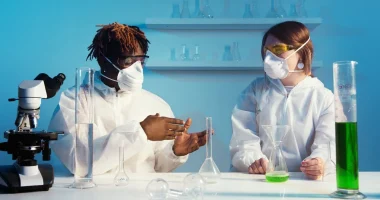The Reason Water Tastes Bad To You Is not Just in Your Head – POV: You get to the convenience store only to find out that your favorite type of water is out of stock, and all that’s left is the one brand you really don’t like. The devastation alone makes your mouth even more parched.
While some may argue that all water tastes the same, that simply isn’t the case for most of us. However, if you consider yourself a water connoisseur and can distinguish one brand from another with ease, a board-certified otolaryngologist says that there’s a scientific reason why water may taste bad to you. In fact, you may actually be a supertaster and not even know it…yet.
What gives water its flavor?
This may sound like an oxymoron, but water does, in fact, have flavor. According to Inna A. Husain, MD, a board-certified otolaryngologist and medical director of laryngology Community Hospital, water is made up of tons of minerals and inorganic compounds that can give it a distinct taste. “The taste of water comes from the natural minerals dissolved in it—there is calcium, sodium, and phosphorous,” Dr. Husain says.
Although most of these minerals go unnoticed by most water drinkers, studies show that some gifted tasters can actually pick up on the subtle flavor nuances present in the beverage. “For the most part, these are not routinely sensed by taste buds. [However], a 2013 study from Spain involving blind taste testers of bottled and tap water samples found that sulfates, calcium, magnesium, and bicarbonate, if present, most affected taste,” Dr. Husain says. Meaning water can definitely taste like more than just plain ol’ nothing.
What’s more, the study also found that bottled or tap water samples that ranked the best in terms of taste had greater concentrations of bicarbonate, sulfate, calcium, and magnesium with relatively high pH values (meaning more alkaline; less acidic). Meanwhile, samples with higher concentrations of sodium, potassium, and chloride scored the lowest. And although residual chlorine did not affect the ratings in the study in terms of taste preference, it did enable the panelists to distinguish between bottled mineral water and tap water samples.
How we perceive the way that water tastes
Our taste buds play an important role in determining why we like one type of water more than another. That’s because our taste buds are sensitive to five basic taste qualities: sweet, salty, sour, bitter, and umami (or savory). Of these, research shows that water can activate our sour receptors depending on the sensitivity of our taste buds.
“In 2017, a study from Caltech identified, in lab rats, that drinking water stimulates our ‘sour’ taste receptors. These taste receptors activate different parts of the brain and can influence behaviors, for example, making you want to drink more water or spit it out if it tastes contaminated,” Dr. Husain says.
According to Dr. Husain, it’s also worth taking a closer look at how genetics can be closely intertwined with our perception of taste. “We know that there are genetic differences in our ability to taste related specifically to the ability to identify bitter flavors. Those with sensitivity to bitterness are called ‘supertasters,’ a term coined by Professor Linda Bartoshuk,” she says. But to have this coveted title, it all comes down to having—and being born with—more taste papillae (taste buds) than non-supertasters.
“[Supertasters] are also more sensitive to umami, salty, sweet, and sour. This heightened sensitivity tends to make them more picky eaters as well,” says Dr. Husain. It also explains why some folks might be more sensitive than others to subtle notes of sourness and other elements present in water. “This can impact how we perceive the taste of water; supertasters are theoretically going to be more sensitive to the flavor of the minerals absorbed in the water,” she says.
See? Our taste and affinity toward overpriced bottled water are justifiable after all. Phew.
Home | The Reason Water Tastes Bad To You Is not Just in Your Head










